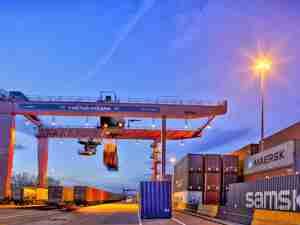With more than a third of its population vaccinated, there are signs that British drivers are returning to their cars.
Congestion in London on Thursday had only been higher on one other occasion since the pandemic hit, according to data from location technology specialists TomTom NV. Nationwide, road fuel sales last week rose to their highest level since December, according to government data.
The U.K.’s widespread vaccine rollout makes it a closely watched nation for signs of improvements in oil demand. While the U.K. ranks fifth globally for the number of coronavirus deaths, it is also fifth for the number of doses administered for every 100 people, suggesting a return to more normal patterns of consumption could be on the cards. Much of the path forward will likely depend on how the planned relaxation of the country’s lockdown rules proceeds over the coming weeks.
For now, those rules remain strict. Travel abroad is severely limited, meaning that the number of passengers on planes is still down more than 90% on a year earlier, according to OAG data. While road fuel sales are recovering, they too are still down by about a quarter on pre-covid levels.
Passenger vehicle use could also see an uptick if people continue to stay away from mass transit systems. Rail usage is yet to rise above 20% of pre-pandemic levels this year, while use of London’s metro and bus system is down by at least two thirds.
Further easing of restrictions on travel to workplaces and for leisure activities, which are planned over the coming weeks, may lead to further jumps in road fuel use before they have an impact on public transport. People aren’t expected to give up their cars in favor of mass transit until there are clear signs that vaccinations are having the desired impact on infection rates.











